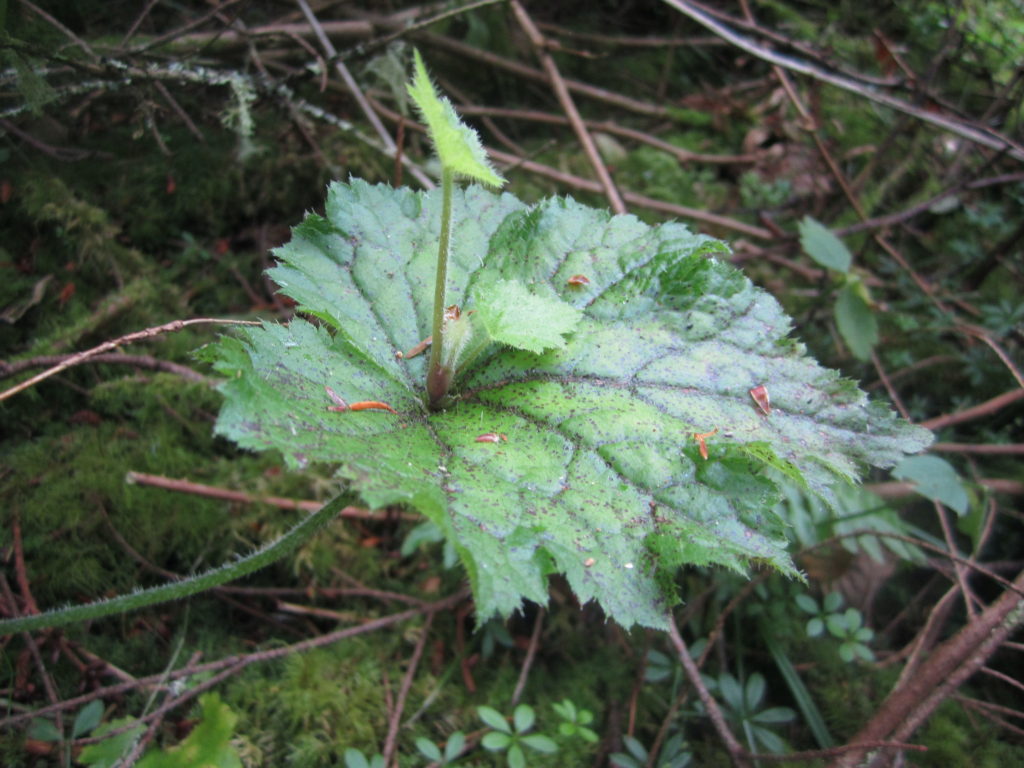And I always say, if there’s one thing you want to do as an adult to become a better listener, take a preschooler — someone who hasn’t gone to school and been taught how to listen by focusing attention, which is actually controlled impairment, but a preschooler who’s still taking in the whole world — hoist them onto your shoulders, and go for a night walk. They’ll tell you everything you need to know about becoming a better listener.
And if you have the good fortune of going for a walk up a nature trail with a child, the younger they are, the more pointless it seems to go any further, because the miracles are right here. Let’s just sit down, don’t worry about the exercise or the goals … Gordon Hempton*

Being the mother of three, now adult children as well as being an educator, listening to Hempton’s description of encountering the world with very young children elicited many wonderful memories of similar experiences. Days after hearing the podcast, I participated in a small Zoom book club meeting with friends who have been exploring topics of contemplative prayer and mysticism. During the conversation about what being a contemplative means, how one might “pray always,” and how to nurture the desire for God above all else, some offered images of hermits and cloistered nuns. Of Buddhists who can sit for hours at a time in meditation. Some expressed the impossibility of letting go “all things earthly” or emptying themselves completely.
These images made me restless. Not that there was no truth in them, but that they seemed to suggest contemplative prayer involved compete withdrawal from the world. The contemplative souls I have known, read, or studied did not fit those descriptions. Gordon Hempton’s description of a young child experiencing the world did.
Just as a child is schooled in listening by “focusing attention,” many of us have been “schooled” in praying by adopting prescribed practices, following rituals, or learning particular prayers. In elementary school, teachers told me that prayers came in three main varieties: petitionary prayers (help), intercessory prayers (help someone else or some larger cause), and prayers of praise (adoring God for being God). Of course, the church has a rich tradition of contemplative prayer, but other than the true but rather nebulous (to a nine-year-old anyway ) definition offered by the old Baltimore Catechism—prayer is lifting the mind and heart to God—what I remember being taught is the list.
Why didn’t I hear “God’s your friend who cares about you. Talk to God about anything you want.” Thich Naht Hanh wrote that the heart of Buddhist teaching is “I am here for you.” That’s the kind of God I experienced as a child. It’s where I was then. And by some grace, that’s where I’ve stayed. Of course, one’s prayer deepens and matures as one grows, but the basic truth remains: Prayer is relationship with God who cares. It is connection with the Holy One. With Love manifest in others and in all creation.
Being taught to narrowly focus attention, whether in experiencing nature or in prayer, is important at some point, but not at the expense of the wide, open-hearted approach to both. That’s what I loved about Hempton’s description of the young child in nature. Complete openness. Forgetting self and letting it all in. Drowning in the glory of it all.
The only moment in which you can be truly alive is the present moment.
Thich Nhat Hanh in You Are Here
Hempton’s observation that once on a walk, a very young child needn’t take another step “… because the miracles are right here” is another way of expressing the truth of the ever-presence of the Sacred in our lives. Grace is in the moment. Not tomorrow. Not even 15 minutes ago. Now.
And while I often imagine that God is more easily met on a slow walk along the ocean’s coast than in my apartment or neighborhood, the truth is that God is met not somewhere else, but HERE, wherever “here” is at the moment.
Mystics and contemplatives of all ages and faiths know this. As Thornton Wilder reminds his readers, poets and saints recognize the beauty and mystery of every ordinary moment. I made a vow to myself in high school English class, the first time I read Our Town, that one way or another, I would be a saint or a poet. I would not let the glory of the moment slip by.
Decades later, I confess to not living up to that promise every day. But I do remember it, honor it as best I can, and when I fall short, remember that besides being a sacrament of encounter, life is also a journey. Step at a time.
May we learn from the youngest among us and not make it more complicated than it is!
PHOTOS: Mary van Balen
SOURCE: Gordon Hempton in conversation with Krista Tippett on OnBeing podcast: Silence and the Presence of Everything.
